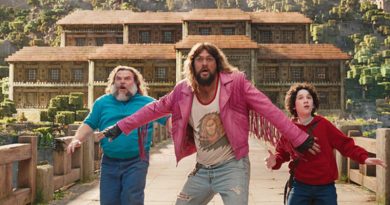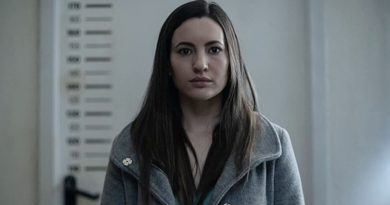Urchin Review: Harris Dickinson’s Feature-Length Directorial Debut Shows Some Promise in This Surrealistic Kitchen Sink Drama
Harris Dickinson steps behind the camera in Urchin, marking Triangle of Sadness and Babygirl actor’s feature-length debut in both writing and directing capacities. The result? An absorbing kitchen sink drama with shades of Ken Loach and Mike Leigh, focusing on homelessness in the streets of London, as Dickinson zeroes in on a particular young man named Mike (Frank Dillane). The movie opens promisingly as we follow Mike awakes on the street, following the noise of a shouting preacher, along with passersby and traffic dominating the city.
Mike is a rough sleeper, a term referring to an unhoused individual who sleeps rough, typically in public places, from streets to parks or other areas such as abandoned buildings and makeshift shelters. The camera stays distant as if we are observing his day-to-day life from an outsider’s perspective, as Dickinson and cinematographer Josée Deshaies bring a documentary-like realism to the earlier scene.
We see Mike standing on the street begging anyone passing by for some spare change, but none of them seem to bother or quickly excuse themselves. At one point, he overstays his welcome by falling asleep while charging his phone at a restaurant, resulting in the owner urging him to leave. Dickinson also shows up in a small role as a fellow rough sleeper, where Mike confronts him for stealing his wallet. A fight ensues, only for a stranger to intervene and stop them immediately.
The story soon reaches a turning point, which ends with Mike in prison. This leads to a surprisingly surrealistic scene of water from Mike’s shower flowing into the drain before the camera tunnelling all the way down into the void, and finally out of a mossy rock in the outdoors, which somewhat represents the protagonist’s subconscious. As the movie progresses, we see that Mike is now on parole, staying in a hostel and getting a job working as a commis chef in a hotel kitchen.
Dickinson’s screenplay eschews the backstory or even a flashback surrounding the protagonist’s past, giving us only glimpses on a what-we-need-to-know basis. We learn that Mike is a drug addict and has a temperamental issue. Dillane does a great job portraying such a character, whose life remains in tethers despite undergoing some changes throughout the movie. But it’s not all doom and gloom about Mike’s situation as Dickinson slips in moments of respite, first in a scene at a get-together karaoke session with two of Mike’s female colleagues singing Atomic Kitten’s song. Not to mention a later scene of a nighttime, ketamine-fueled party dancing to the mesmerising sound of Desireless’ “Voyage Voyage”.
As much as I appreciate Dillane’s performance to a certain extent and Dickinson’s keen eye for blending kitchen sink drama with surrealistic imagery, I still can’t help feeling a nagging sense of disconnect on Mike’s messed-up life. This is especially true with Mike acting like a jerk the whole time. While it’s understandable that there’s no sure thing in life that a person’s arc can lead to a transformative path, but rather, be stuck in the same self-destructive cycle, which in this case, happens to Mike.
This, in turn, resulted in his character coming across a largely unlikable protagonist, making it difficult for me to root for his overall journey. Personally, I prefer the solid first half of the movie, particularly during the earlier stretch, before the wobbly second half begins to lose its momentum right down to the ambiguous ending. Urchin isn’t as great as I thought it would be, but still, for a feature-length debut, then-28-year-old Harris Dickinson proves he has some nifty directorial chops in him other than acting in front of the camera.





